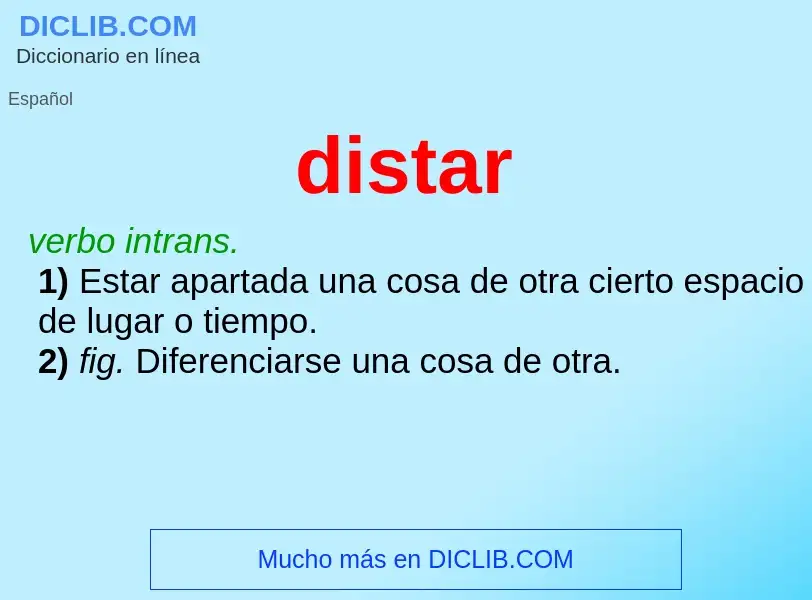Enter a word or phrase in any language 👆
Language:
Translation and analysis of words by ChatGPT artificial intelligence
On this page you can get a detailed analysis of a word or phrase, produced by the best artificial intelligence technology to date:
- how the word is used
- frequency of use
- it is used more often in oral or written speech
- word translation options
- usage examples (several phrases with translation)
- etymology
What (who) is distar - definition
distar
verbo intrans.
1) Estar apartada una cosa de otra cierto espacio de lugar o tiempo.
2) fig. Diferenciarse una cosa de otra.
distar
Sinónimos
verbo
Antónimos
verbo
distar
distar (del lat. "distare")
1 intr. Estar una cosa separada de otra por cierto espacio medido por la línea o camino entre las dos: "Toledo dista 80 Km de Madrid". Equidistar.
2 También se aplica, aunque poco, a la separación en el *tiempo: "Su llegada no distó de la mía mas de tres semanas".
3 ("de") Con "mucho" o adverbios equivalentes, ser la cosa de que se trata muy *diferente de otra que se expresa: "Esa versión dista mucho de la verdad". Generalmente, se construye con un verbo en infinitivo: "El niño dista mucho de escribir correctamente". Frecuentemente se usa como *eufemismo para significar que la cosa de que se trata es lo opuesto a lo que se dice: "Eso dista mucho de ser cierto".
Examples of use of distar
1. Me han robado varios meses de vida, y me robarán muchos más". Las condiciones de la vida cotidiana en la cárcel de Dubai parecen distar mucho de los estándares europeos.

